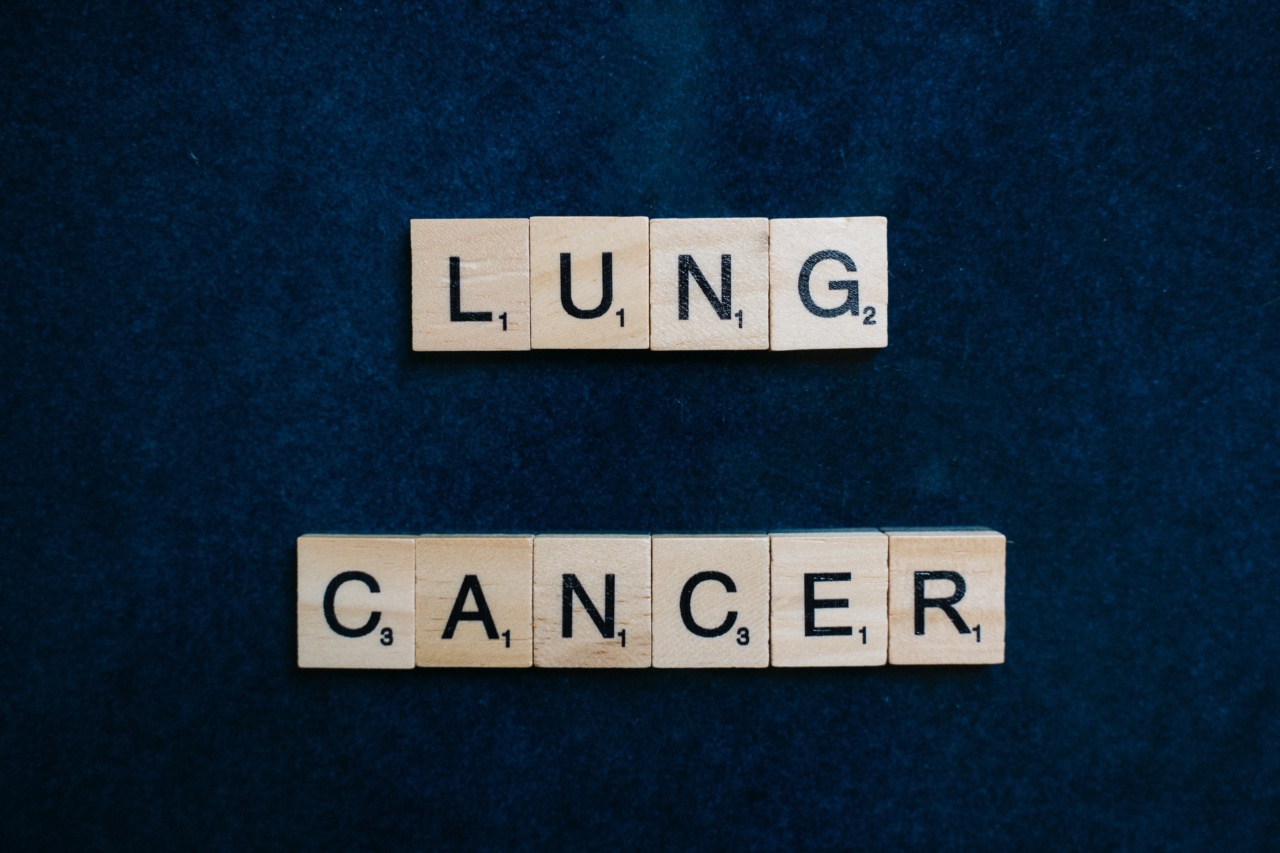Coughing is a natural reflex of the body where it tries to clear the air passages of any irritants or foreign particles. However, if it persists for a long time, it can be an alarming sign of an underlying disease.
Lung cancer is one of the conditions that can cause a persistent cough, but not every cough is a sign of cancer. Understanding the relationship between coughing and lung cancer can help you decide when to seek medical help and how to take preventive measures.
What is Lung Cancer?
Lung cancer is a type of cancer that develops in the cells of the lungs. It is the leading cause of cancer deaths worldwide, accounting for about 1.76 million deaths in 2018.
There are two major types of lung cancer – small-cell lung cancer (SCLC) and non-small cell lung cancer (NSCLC). SCLC spreads quickly to other parts of the body, while NSCLC grows slower and accounts for about 85% of lung cancer cases.
Smoking is the primary cause of lung cancer, but non-smokers can also develop lung cancer due to exposure to environmental pollutants or genetic factors.
Why Does Lung Cancer Cause Coughing?
Lung cancer can cause coughing in several ways. Firstly, the tumor growth can block the air passage, causing difficulty in breathing and triggering a cough.
Secondly, the cancer cells can irritate the lining of the lung tissues, causing inflammation and coughing. Thirdly, the cancer cells can produce mucus, which can accumulate in the air passage and trigger a cough. Fourthly, lung cancer can weaken the immune system, making it vulnerable to infections that can cause coughing.
Coughing is usually a symptom of advanced stage lung cancer, but it can also occur in the early stages.
When Should You Be Concerned About Coughing?
Not every cough is a sign of lung cancer. However, you should be concerned if the cough persists for more than three weeks, is accompanied by chest pain, hoarseness, shortness of breath, coughing up blood or mucus, or unexplained weight loss.
Moreover, if you are a smoker or have a family history of lung cancer, you should be more vigilant about any persistent cough or other respiratory symptoms. Early detection and treatment of lung cancer can make a significant difference in the outcomes, so do not ignore any warning signs.
How Can You Prevent Lung Cancer?
Prevention is always better than cure. The best way to prevent lung cancer is to avoid smoking and exposure to environmental pollutants such as second-hand smoke, asbestos, radon, and air pollution.
If you are a smoker, quitting smoking is the single most effective step you can take to reduce your risk of lung cancer. Moreover, maintaining a healthy lifestyle with a balanced diet, regular exercise, and stress management can boost your immune system and reduce the risk of developing any disease, including cancer.
How Is Lung Cancer Diagnosed?
If you have persistent cough or other respiratory symptoms, your doctor may recommend various diagnostic tests to determine the cause of the symptoms. These tests may include:.
- Chest X-ray or CT scan to detect any abnormality in the lungs.
- Sputum cytology to examine the mucus for cancer cells.
- Bronchoscopy to examine the airway and take a tissue sample for biopsy.
- PET scan to detect any spread of cancer to other parts of the body.
The diagnosis of lung cancer can be challenging as the symptoms are often similar to those of other respiratory illnesses. Therefore, early detection and accurate diagnosis are crucial for effective treatment.
How Is Lung Cancer Treated?
The treatment of lung cancer depends on various factors such as the type, stage, and location of the cancer, as well as the individual’s overall health and preferences. The treatment options may include:.
- Surgery to remove the cancerous tumor and nearby tissues.
- Radiation therapy to destroy the cancer cells using high-energy radiation.
- Chemotherapy to kill the cancer cells using drugs.
- Targeted therapy to attack specific genes or proteins that promote the growth of cancer cells.
- Immunotherapy to stimulate the immune system to fight against cancer cells.
The treatment of lung cancer can be complex and may involve a combination of therapies. Your doctor will discuss the various options with you and help you choose the most appropriate one for your condition.
Conclusion
Coughing can be a symptom of lung cancer, but not every cough is a sign of cancer. Understanding the relationship between coughing and lung cancer can help you take preventive measures and seek medical help if needed.
If you have a persistent cough or other respiratory symptoms, talk to your doctor to determine the cause and get timely treatment. Moreover, avoiding smoking and environmental pollutants is the best way to prevent lung cancer and many other diseases.




























